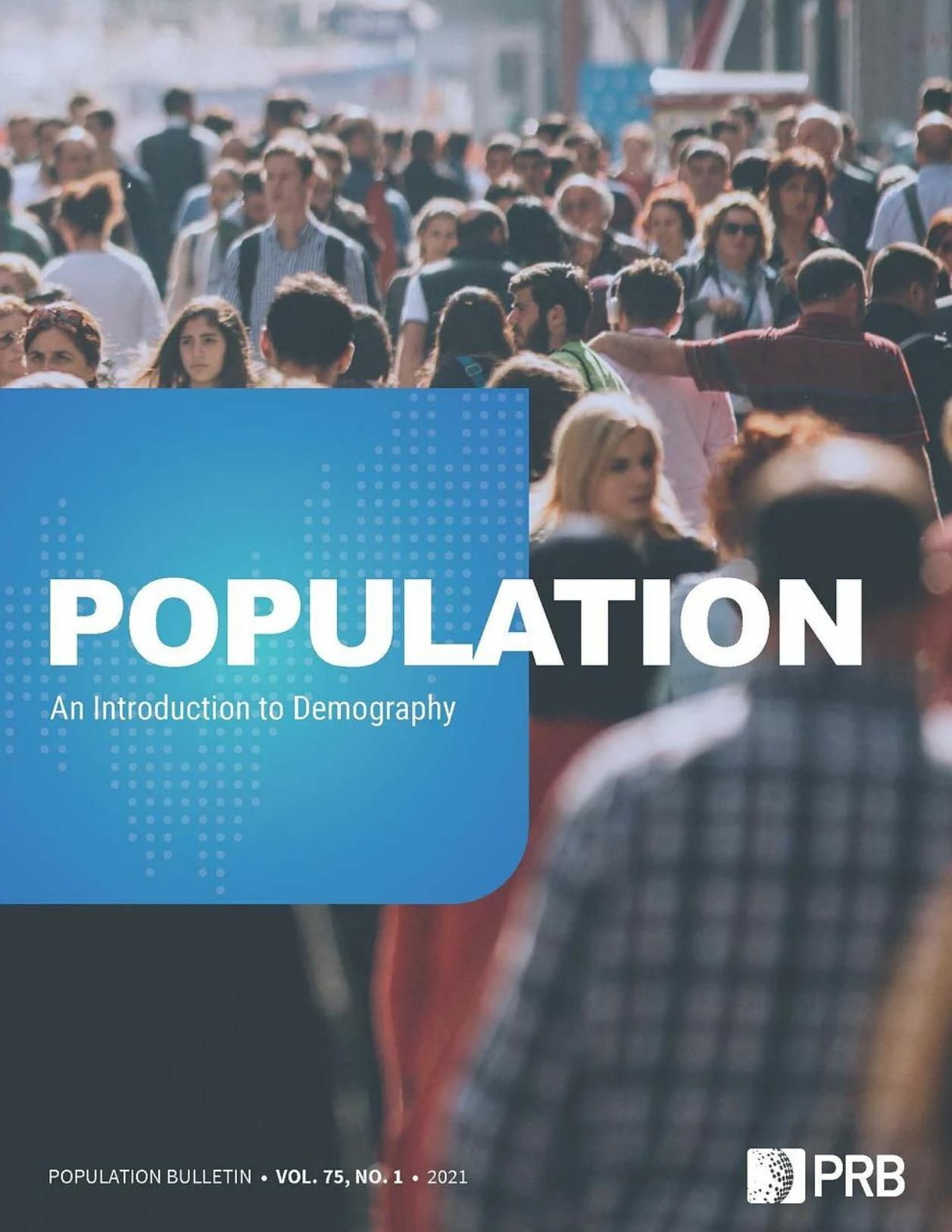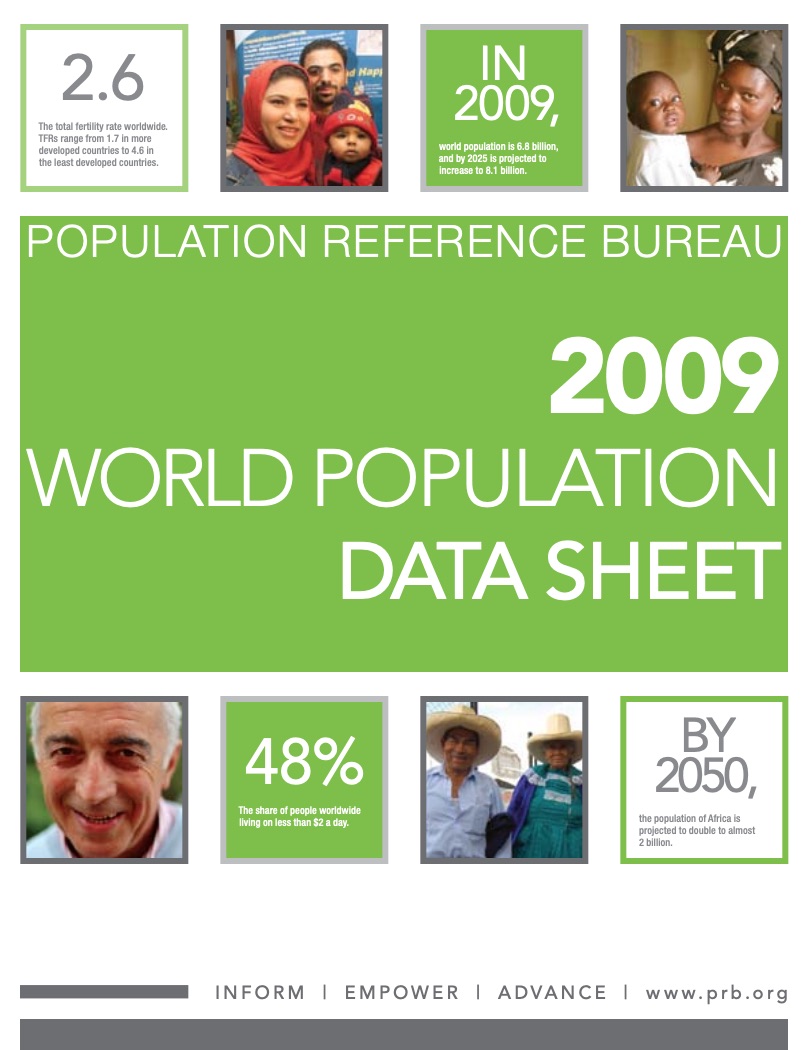Population Bulletin vol 75. no.1 : An Introduction to Demography
PRB’s latest Population Bulletin provides a basic understanding of demography and demographic processes, including fertility, mortality, and migration, and their effects on the world.

PRB’s latest Population Bulletin provides a basic understanding of demography and demographic processes, including fertility, mortality, and migration, and their effects on the world.

(2009) Global population numbers are on track to reach 7 billion in 2011, just 12 years after reaching 6 billion in 1999. Virtually all of the growth is in developing countries.
(2009) Cross-generational sex—or Sugar Daddy syndrome—is a pattern of sexual behavior between young women and much older men that brings increased health risks and consequences for young women.

Project: American Community Survey and Decennial Census Support Services
The addition of a citizenship question to the 2020 Census may put almost one in 10 U.S. households and nearly 45 million people at greater risk of not being counted―the question has been shown to reduce response rates. Undercount risk is particularly high among young children.
(2008) Globalization helped increase incomes in Canada, the United States, and Mexico for more than 10 years, but left many children vulnerable economically.
(2006) The world's elderly population is quickly growing, both in its absolute numbers and in its percentage relative to the younger population—the latter trend known as population aging.

Human population influences and is influenced by climate change and deserves consideration in climate compatible development strategies. Achieving universal access to family planning throughout the world would result in fewer unintended pregnancies, improve the health and well-being of women and their families, and slow population growth—all benefits to climate compatible development.